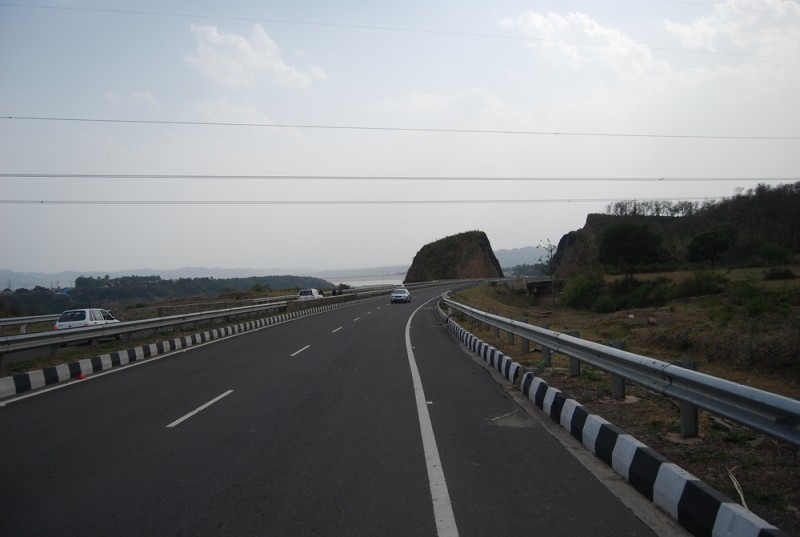Delhi-Mumbai Express Highway May Cut Travel Time By 8 Hours

Union Minister Nitin Gadkari on March 8 laid the foundation stone for the six-lane Rs 90,000-crore Delhi-Mumbai Expressway. The access-controlled highway that will be built in next three years, under the Bharatmala Pariyojna Programme, will connect India's national and financial capitals, and will reduce the travel time between the two cities from 20 hours to a mere 12 hours.
Planned in four phases, work has already begun on two stretches – the Delhi-Gurgaon-Jaipur stretch and Vadodara-Mumbai stretch.
The Delhi-Mumbai Expressway will be connected to the proposed eight-lane Chambal Expressway and benefit the states of Madhya Pradesh and Rajasthan. Unlike many highways, the alignment of this expressway will cover the hinterlands and several tribal areas of the country.
Project cost: The expressway will be developed at a total cost of Rs 90,000 crore.
Faster access: The upcoming route will cut the distance of 1,450 kilometres between the two metropolises to about 1,250 kilometres, curtailing the duration of a gruelling journey. Currently, the Rajdhani Express provides the quickest connectivity in 16 hours.
Boost to logistics: The Delhi-Mumbai highway currently carries nearly 15 per cent of the country’s cargo traffic which is likely to rise with the launch of this project. The logistics costs are soaring high in India compared to other countries. Gadkari also aims to increase the potential of trucks to cover an average distance of 400 kilometre per day, from the present average of 250 km per day.
New route-map: The expressway will cover major cities and districts namely Delhi, Gurgaon, Mewat, Kota, Ratlam, Godhra, Vadodara, Surat, Dahisar and Mumbai. As per the new alignment, it will start from Rajiv Chowk in Gurgaon linking Ring Road of Delhi to Jaipur, Alwar and further towards Sawai Madhopur and finally reaching Mumbai via Vadodara.
Features: The upcoming corridor will have a high-quality tarmac aimed at ensuring road safety and offer a seamless driving experience. Vehicles will enjoy a speed limit of about 120 kmph to 130 kmph whereas heavy trucks will need to restrict themselves between 80 kmph to 100 kmph.
